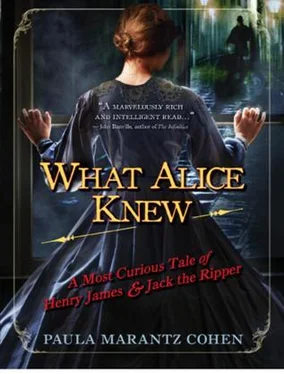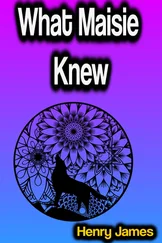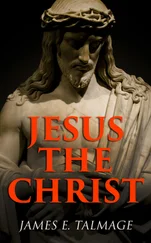***
The invitation to this evening’s event had come in a hand Henry recognized at once, though he had seen it only twice: on the card crumpled beneath his sister’s bedcover and, before that, in the reply to the invitation to his dinner party those many years ago.
“You are cordially invited to attend the opening of the Camden Town Group Show,” and scrawled in red ink at the top, words that mimicked those on the card to his sister: “Please exert yourself and come—for the sake of old times if nothing else. WS.” WS, not PW, thought Henry. Sickert was no one’s pupil now. He had forged a reputation of note, become an eminence in the art world.
Although Henry had not attended Sickert’s previous exhibitions, he was determined to go to this one. It was the lure of the past—not just the literal past referred to in the scrawled message, but the hidden, subjective past that lay buried with his sister. I must go , he thought, in reverence to her —oddly, since she had not wished to see the man again. But wasn’t that precisely the reason? Sickert had meant something of consequence or she would not have been so adamant about banishing him from her life.
There had been some difficulty persuading his friend to go. Sargent was resistant. The art world had changed, he said; the new people newer than they used to be. He feared being heckled or, at best, condescended to. Indeed, the crowd in the gallery did not seem congenial—young men with wispy beards, wiry little physiques, and sharp, unforgiving eyes. In the corner was Roger Fry, who had pilloried Sargent in the press the week before. Near the window was the wild female painter who, along with her sister, the supercilious Woolf girl, was like an Amazon, likely to throw a spear at you when you weren’t looking. Where were the artistic lions of yesteryear? Alphonse Legros had died. The bulwark had given way; the deluge had come.
Henry gazed around himself at the paintings in the gallery. There were half a dozen artists on display who called themselves the Camden Town Group. Some were conventional postimpressionists. Such a name. It sounded like a contradiction, but in fact, innovation had become formulaic. The tradition that Legros had championed—scrupulous schooling in the old masters—had been superseded by a rote taste for the primitive, the geometric, and the abstract. “Modern” was the term. Henry himself had been called it in one breath and castigated for not being enough of it in the next. The whole thing gave him a headache.
The paintings around him were not pleasant, and he could see that Sargent, for one, was put off. He peered at a group of canvases by Wyndham Lewis, who stood nearby, surrounded by an admiring throng. Lewis was the great star of the moment, acclaimed far beyond such elder statesmen as Sargent. It must rankle, to have such a young man eclipse you. It was a problem he didn’t have, Henry thought bitterly; he had never sold well enough to suffer eclipse. Of course, he was idolized by some, he reminded himself. The happy few , he thought, select, discriminating, but sadly few .
Sargent had been collared by a group of young artists who were likely to bait him like a muzzled bear. It could be painful to watch. Henry wandered to the other side of the room.
A spry, middle-aged man with thick, wavy gray hair and sharp features approached. He was accompanied by a woman of the same age, elegantly dressed with a dark, exotic physiognomy. Her hair was piled fashionably on the top of her head. It was lustrous and black but shot through with a white streak that made her look even more striking. As the man drew nearer, Henry met his eyes and saw they were piercingly blue. Sickert.
“It was good of you to come,” Sickert said, smiling. “I would only wish that your brother and sister could have been here too. I deeply regret their passing.”
Henry nodded. He could still see the music hall performer in the established artist, the young man in the older one. The change really wasn’t very great. There was something sharp edged about Sickert even now, something young and saucy. He was the sort of man who would always appear to be new, no matter how established and successful he became. There was a talent in that.
Sickert gestured to his companion. “This is my friend, Mrs. Cassel.”
The woman smirked slightly and extended her hand. “I was a great admirer of your brother’s,” she said.
Henry bowed. During William’s lifetime, a comment like this would have annoyed him, but now he was willing to be magnanimous. After all, he had, in the most literal sense, won that battle in being the one still alive. “He was a genius,” he acknowledged.
“I didn’t mean his work,” said the woman with surprising directness, “though I admired it as well. I was speaking of the man. I knew him, though only briefly, during his visit to London many years ago. We were quite…simpatico.”
Henry blushed. Though the woman spoke without shame, he felt that she meant something more than simple friendship. He recalled his brother’s strange behavior during the Ripper case and was swept with the conviction that this woman must have had a part in it. The De Quincey volume had been connected with a woman, he recalled.
“Have you seen my work yet?” asked Sickert.
“Not yet,” said Henry, looking dazedly around the gallery. “There are so many pictures. Please show me.”
Sickert led him over to one wall where a half dozen paintings were displayed. Henry remembered the watercolor Sargent had found in his studio, done early in Sickert’s career. It was odd how much these works reminded him of that, done, it must be assumed, when the man had been no older than twenty-two or twenty-three. He had struck his keynote even then, when he was still a “pupil of Whistler.” Again, he thought of the appellation that had set them all going, at first, in the wrong direction. His eyes darted to inspect Sickert. Was it so wrongheaded? The man was quick, furtive, comfortable in costume, odd with women. He could, if one had an imagination, be conceived of as a murderer.
Henry turned and looked at the picture before him. It showed a woman in tattered underclothes beside a man in evening dress, skulking—the word seemed apt—in a dark room. He read the tag: “Camden Town Murder.”
He shrank back as though slapped.
“What is it?” said Sickert, looking at him with his sharp blue eyes.
“It’s a provocative title,” murmured Henry.
“It’s a subject that interests me,” said Sickert, “for reasons that go back. The perpetrator in this case has not been caught either.”
Henry shuddered slightly. It was true that Abberline had found it impossible to confirm Newsome’s guilt. It required imagination to put it all together, and that, Abberline said, was the problem; the facts were sparse. Nothing in Newsome’s shop had linked him to the murders. The gist of the thing lay in his relationship to Sickert, in his access to Sickert’s things: the writing materials, the De Quincey volume, the costumes, the goad of the paintings. It required that Newsome be a failed version of Sickert, an idea at once powerful and elusive. In the end, Newsome’s death had been judged a suicide due to masturbatory insanity. The siblings had been content to know what others didn’t, and to register the implications: no more women hacked to death in the East End. Until now.
Sickert’s blue eyes met Henry’s. “Perhaps Jack the Ripper is back.”
Henry remembered what he had read about these murders. In one article, the inspector—not Abberline, who had long retired—had noted that they were “worse even than the Ripper murders of ’88, if such were possible.”
“But we must have dinner and reminisce,” said Sickert, changing the subject brightly. “Mustn’t we, Ella?” He motioned to the woman beside him. “What a shame that your brother and sister can’t join us. But then…they are in a better place. I don’t believe in the immortality of the soul, as I once explained to your sister, but that doesn’t prevent me from thinking that where she is, is better.” He paused, musing. “She was an exceptional woman. I am sorry that we did not keep up our acquaintance. But I blame myself. I am not reliable.”
Читать дальше












